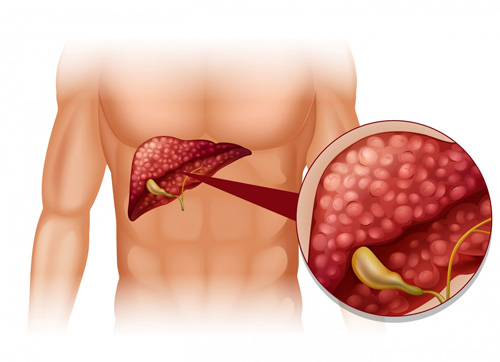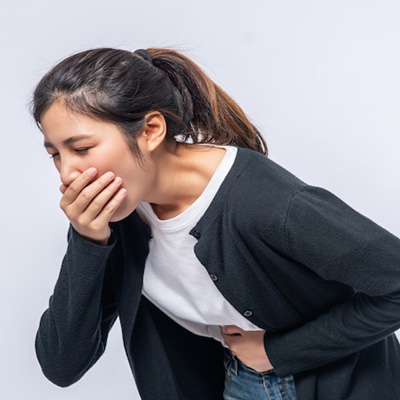Introduction
Primary liver cancer is a disease in which malignant (cancer) cells form in the tissues of the liver. The most common type of primary liver cancer is hepatocellular carcinoma (HCC). Most common visceral malignancy worldwide; usually asymptomatic until disease advanced.
Understanding Liver Cancer
Liver cancer is a serious and potentially life-threatening condition where malignant (cancerous) cells develop in the tissues of the liver. The liver, one of the largest organs in the body, plays a vital role in metabolism, detoxification, and digestion. It processes nutrients from food, produces bile for digestion, detoxifies harmful substances, and helps regulate blood clotting. Given its central role in maintaining bodily functions, liver cancer can have significant and widespread impacts on a person's health.
Several risk factors contribute to the development of liver cancer, including chronic infections with hepatitis B or C, long-term alcohol abuse leading to cirrhosis, and genetic conditions such as hemochromatosis

Symptoms of Liver Cancer
The symptoms of liver cancer can include:
- Weight loss
- Loss of appetite
- Fatigue
- Nausea and vomiting
- Abdominal pain
- Swelling of the abdomen (ascites)
- Yellowing of the skin and eyes (jaundice)
- Dark urine
- Itchy skin

Risk Factors
Alcoholic cirrhosis, chronic hepatitis B or C, and hemochromatosis are risk factors.
Diagnosis of Liver Cancer
- Anaemia or erythrocytosis;
- Liver function test abnormalities
- Dramatic elevation in alpha-fetoprotein (AFP) helpful in diagnosis, though significant percentage have normal AFPs
- Tendency to ascend hepatic vein and inferior vena cava
- Angiography (though rarely performed) with characteristic abnormality;
- CT or MRI suggests diagnosis;
- Tissue biopsy for confirmation
Homeopathy and Liver Cancer
Surgical resection thought best curative option if lesions are resectable and patient is operative candidate Liver transplant may be curative in small percentage of highly selected patients
Homoeopathic Medicines for Liver Cancer
- Ceanothus
- Anæmic patients where liver and spleen are at fault.
- Marked blood pressure, reducing powers.
- Deep-seated pain in the left hypochondrium.
- Unable to lie on the left side.
- Pain in the liver and back.
- Chelidonium
- A prominent liver remedy, covering many of the direct reflex symptoms of diseased conditions of that organ.
- The jaundiced skin, and especially the constant pain under the inferior angle of the right scapula, are certain indications.
- Tongue yellow, with imprints of teeth; large and flabby (Merc; Hyd).
- Taste bitter, pasty.
- Bad odour from mouth.
- Prefers hot food and drink.
- Nausea, vomiting; better, very hot water.
- Pain through stomach to back and right shoulder-blade.
- Gastralgia.
- Eating relieves temporarily, especially when accompanied with hepatic symptoms.
- Cadmium Sulphuratum
- Salty belching.
- Intense nausea, with pain and cold.
- Stringy, offensive exudation on mucous membrane.
- Salty taste.
- Soreness in the pit of the stomach on pressure.
- Violent nausea; retching.
- Black vomit.
- Vomiting of mucus, green slime, blood, with great prostration, and great tenderness over the stomach.
- Burning and cutting pains in stomach.
- Carcinoma helps the persistent vomiting.
- Coffee ground vomiting.
- Sore, tender, tympanitic.
- Region of liver sore.
- Coldness.
- Black, offensive clots of blood from bowels.
- Pain in abdomen, with vomiting.
- Tenderness and tympanites.
- Conium
- Soreness about the root of the tongue.
- Terrible nausea, acrid heartburn and acid eructations; worse on going to bed.
- Painful spasms of the stomach.
- Amelioration from eating and aggravation a few hours after meals; acidity and burning; painful spot the level of the sternum.
- Severe aching in and around the liver.
- Chronic jaundice, and pains in the right hypochondrium.
- Sensitive, bruised, swollen, knife-like pains.
- Painful tightness.
Benefits of Homoeopathic Treatment
- Individualised Care: Homoeopathy recognizes that each person is unique. A homoeopath will assess your symptoms, medical history, and lifestyle to prescribe a personalised treatment plan tailored to your needs.
- Gentle and Natural: Homoeopathic remedies are derived from natural substances and are known for their minimal side effects. They work in harmony with the body, promoting self-healing and overall well-being.
- Holistic Approach: Homoeopathy takes into account not only the physical symptoms but also the emotional and mental aspects of an individual. It aims to restore balance at all levels, providing comprehensive care.
- Long-Term Relief: By addressing the underlying causes of Ulcerative Colitis,homoeopathy strives to achieve long-term relief and improved quality of life.
Patient Review
Consulting a Homeopath
If you have liver cancer and are seeking natural alternatives for managing your condition, it is essential to consult with a qualified and experienced homoeopath. At Sanjivani Homeopathy Clinic, our skilled homoeopaths will conduct a comprehensive evaluation, considering your specific symptoms, overall health, and individual characteristics. This enables us to develop a personalised treatment plan that addresses your liver cancer management needs and supports your overall well-being.
Sanjivani Homeopathy Clinic USP
- No homoeopathy Dietary Restrictions:
Allows patients to enjoy foods like onion, garlic, and coffee, ensuring a stress-free treatment journey.
- 24/7 Online Consultations:
Enables convenient access to doctors with detailed counseling, history management, and follow-ups.
- Highly Skilled Team:
Experienced BHMS and MD doctors, supported by multilingual and professional staff.
- Patient-Centric Care:
Simplifies treatment with modern, adaptable solutions and clear communication.
Click Here for Detailed "Sanjivani USP"
FAQ's
- What is homoeopathy ?
Homoeopathy is a holistic science which belives in the law of Similia Similibus Curenter i.e Like Cures Like .It was discovered by Dr Samuel Christian Hahnemannn in 1796.
- Is there any side effects of homoeopathy?
As homoeopathic medicines are made from natural substances this medicines have no side effects and are completely safe to consume
- Is there any diet restriction to take homoeopathic medicines?
There are no diet restrictions for homoeopathic medicines. One should only avoid eating or drinking any liquid other than water at least 30 minutes before and after taking homoeopathic medicines.
Click Here for "Frequently Asked Questions."
Conclusion
Homoeopathy offers a potential complementary approach to managing liver cancer by focusing on symptom relief and overall well-being. At Sanjivani Homeopathy Clinic, we are dedicated to providing personalised and effective treatments for individuals seeking natural alternatives for liver cancer management. Contact us today to explore a holistic path toward symptom management and improved quality of life.
Disclaimer : The information provided in this blog is for educational purposes only and should not be considered medical advice. Please consult with a qualified healthcare professional before starting any treatment for Liver Cancer or any other medical condition.


